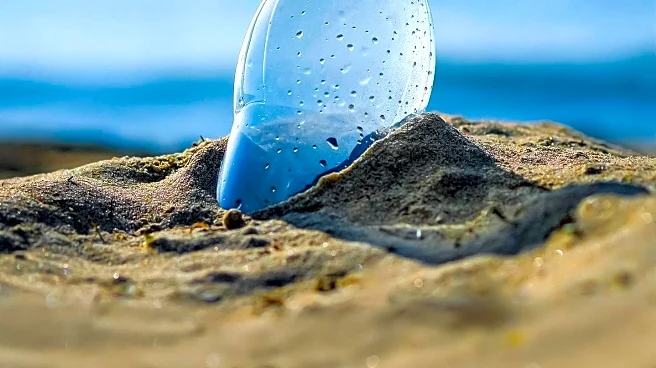What's Happening?
A new study from Concordia University in Canada has found that individuals who regularly drink from single-use plastic water bottles may ingest an additional 90,000 microplastic particles annually compared to those who consume tap water. Microplastics, which are tiny plastic particles less than 5 millimeters long, can leach into the water from the bottle's inner surface, especially when squeezed or heated. The study highlights the widespread presence of microplastics in everyday life, including food, water, clothing, and cosmetics. Researchers emphasize the importance of education on chronic toxicity rather than acute toxicity, as microplastics can accumulate in vital organs and tissues, potentially leading to serious health risks.
Why It's Important?
The findings underscore the growing concern over microplastic pollution and its impact on human health. With bottled water being America's top packaged drink, the study raises awareness about the potential health risks associated with single-use plastic consumption. The research calls for standardized testing to measure microplastic levels in products and stronger policies to limit plastic contamination. The issue affects both consumers and the bottled water industry, which may face increased scrutiny and pressure to address environmental and health concerns. The study contributes to the ongoing dialogue about sustainable practices and the need for alternatives to single-use plastics.
What's Next?
Researchers are advocating for standardized testing and stronger policies to limit microplastic contamination in bottled water. The bottled water industry may need to explore sustainable packaging solutions and enhance transparency regarding product safety. As public awareness grows, consumers may shift towards more sustainable options, potentially impacting market demand for single-use plastics. The study may prompt further research into the long-term health effects of microplastic exposure, influencing public policy and industry practices.









